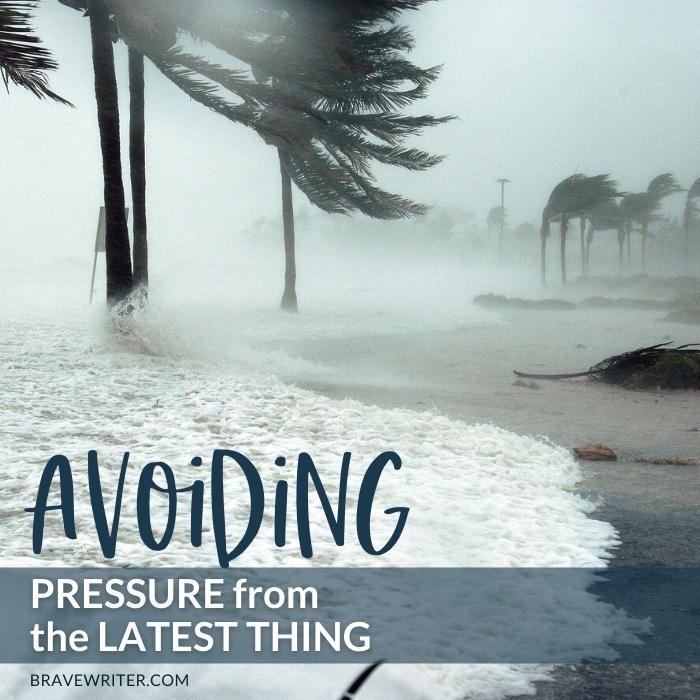An Educational Philosophy that Works

In our attempts to find a philosophy of education that works for our families, we can feel batted around by the strong gusts of the latest curricula, the current trends in home education, the program that solved whatever schooling bugaboo over which we agonized.
Usually no family has just one principle by which it functions and most of the time, we operate by a collection of tidbits:
- math books recommended by a friend,
- a writing program discovered by a google search,
- philosophy expressed in that homeschooling book we happened upon in the library,
- personal hunches,
- comments made by our partners,
- anxieties fostered by relatives, and so on.
And somewhere in that mix are the feelings of our children, a messy house, and a need for a long hot shower!
What happens when we go to a conference or attend a webinar that gives input to home educators living their eclectic, demanding homeschool lifestyles?
Two things: inspiration and guilt.
We attend homeschool support meetings, conferences, and webinars to
- be inspired to try again,
- find a way to connect to our original vision,
- reconnect to our kids,
- internalize some ideal we like but don’t know how to apply.
On the flip side, though, it’s easy to believe that what is presented is perfectly true, works all the time, should be easy, and is preferred to what we are already doing. That little dance leads to guilt
Why haven’t I done it right yet? Why can’t I figure out how to do what looks like it should be easy to do?
Let’s pause here to b r e a t h e.
I’ve got a couple strategies to help you integrate all your aspirations!
First principle: One thing at a time.
I’m reminded again of the One Thing Principle. Take the new ideas one at a time. Pick something you’d like to try and give that one thing a chance to work, to be successful. Then be the judge of it. If it works, celebrate. If it doesn’t, dump it without guilt, without feeling that your family is failing. Know that each idea is only as valuable as it is to YOUR family.
Second principle: If it’s working, don’t fix it.
Sometimes we hear about a “better method” and race off thinking that while what we were doing was okay, this new process must be better because some home education “expert” says so or our best friend loves it. Add in uncertainty and boredom and we may dump something that is well-suited to our kids and family life and find ourselves instead, floundering.
Our families will not be perfect testaments to any curricula because families are living, breathing organisms. Curricula is not.
Therefore, if what is working in your family is, in fact, working, it’s okay to ignore someone else’s suggested best practice. Changing gears, starting something new, applying a different strategy in that instance can be more disruptive than helpful. You make the call!
Each year will present us with challenges and opportunities that require new solutions. One year tea times and copywork may be the key to joy at home. Another year, they’ve become stale or the toddlers won’t let you eat and drink or a spouse is sick and needs attention.
Freedom. Freedom to try things, to discard them, to cycle through them, to find your own homeschooling voice—that’s why you signed up for the bold, brave life. Embrace it!
In all things, I hope that Brave Writer is a place where a table is spread so that you may pick and choose what leads you and your children into joyful language arts and writing.

















